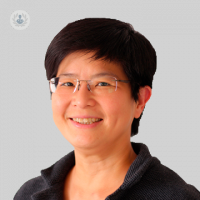What causes infertility, and how do you know if you are infertile?
Autore:In one of our latest medical articles here below, distinguished specialist in reproductive medicine and surgery, Professor Ying Cheong, explains what typically leads to infertility in couples trying to have a baby, and discusses the success rate of fertility treatment nowadays.

What causes infertility?
Infertilty can be caused by many factors. Firstly, it can be caused due to issues with ovulation, having a blockage of the fallopian tubes, and issues with the womb itself (scars, polyps, or tumours). Men also contribute to infertility. Perhaps some men do not have an optimal sperm count, or their sperm may not be moving in the right direction. In a third of the patients I see for infertility, it is a case of a combination of factors between both the man and woman.
Lifestyle is also very important when it comes to fertility. Regular exercise, a healthy, balanced diet, and taking the right supplements are all very important in relation to fertility.
Is infertility more common in men or women?
Certain couples may have more fertility problems than others, and sometimes, either the man or woman has undergone cancer treatment, which has had an impact on their fertility. Then, in other couples, the fertility issues are all related to the woman. In these cases, surgery may be required and others may need medication to improve their ovulation.
How do you know if you are infertile?
Most of the patients I see come to me because they have been trying to have a baby for a long time. People are considered infertile if they have been trying to conceive for 12 months or longer and the woman does not become pregnant. It’s also important to remember that fertility decreases with age. Generally speaking, it starts to decrease after the age of 35.
How successful is fertility treatment?
Fertility treatment has greatly improved over the last couple of years. When we talk about young people, on average, you would see a one in three chance of success. I would say fertility treatments such as IVF has improved in its success rate, but there is still uncertainty because fertility is and always will be quite unpredictable.
To schedule an appointment with Professor Ying Cheong, all you have to do is head over to her Top Doctors profile today.


